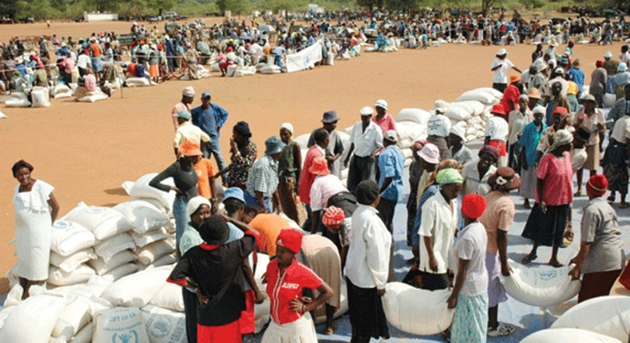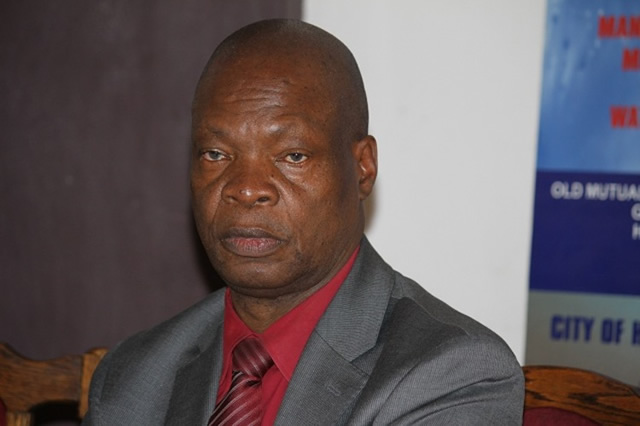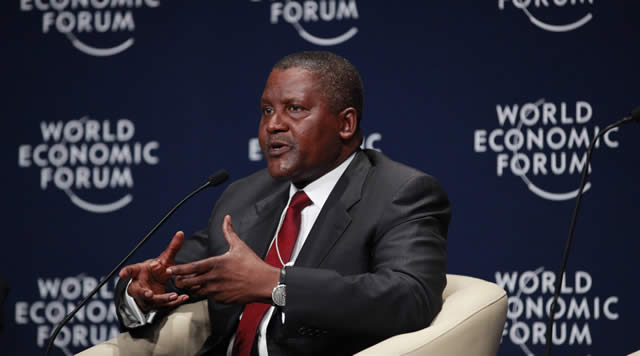We must consolidate development knowledge

 Charles Dhewa Review Correspondent
Charles Dhewa Review Correspondent
Almost every district in Zimbabwe has small projects, ranging from nutrition gardens to all sizes of poultry, goat and cattle projects. Unfortunately, it is very difficult to get a holistic and quantified understanding of all these projects so that one can tell the extent to which they reduce poverty and contribute to national food security goals.
Although development actors have been in Zimbabwe for decades, we still don’t have consolidated knowledge on what has been learnt.
Each organisation still conducts its own evaluation for its own learning not for collective learning. There is an assumption that people have the capacity to consolidate all this knowledge for themselves irrespective of skills.
On the other hand, the origin and effectiveness of methods, frameworks and tangible tools like water pumps, solar gadgets, grinding mills, oil expressing machines and livestock management systems have not been ascertained systematically.
Most community projects do not change lives but just keep people busy at the same place.
Due to the way the development sector has been framed, there tends to be emphasis on accountability to funders than generating real learning for communities and everyone.
Most of the money going into rural finance, food aid and agriculture development programmes does not reflect the priorities of farmers and rural people but the priorities of funders.
This is shown in reports generated by NGOs which tend to be more like solutions looking for a problem rather than answers to real grassroots concerns and needs. While some openness in terms of results of their work can generate enormous learning, the majority of NGOs and government departments seem hesitant to make the public aware of the results of their work.
Instead of promoting demand-driven learning and information seeking practices, development partners now have Public Relations departments which produce and disseminate public relations materials like pamphlets and videos.
Where such a department does not exist, consultants are hired to promote a positive image of the organisation through all kinds of promotional strategies. Trying to project a positive image all the time defeats a learning agenda in an industry where things rarely go as planned due to contextual factors.
Excessive investment in promotional and public relations stuff seems designed to neutralise evaluations which portray projects in a bad light. Most of the information disseminated is mainly for informing than learning and inspiring.
Better to admit failure than pretend to be succeeding
Development agencies and NGOs dotted in most wards and districts should develop a culture of sharing stories of failure with everyone. It is better to have real stories of failure where organisations admit that they wasted millions in scarce development resources rather than continue pretending they are succeeding.
This is more useful in re-visiting development approaches. Where the written word may not be the best way of sharing findings with farmers and rural communities, locally relevant methods should be explored rather than taking the one-sided public relations route.
The fear of talking about what goes wrong is strange in a sector where almost nothing ever goes according to plan for good reasons. Another blunt instrument being questioned by ordinary people is the use of templates and calls for proposals in generating fundable projects as if every creative and innovative streak can fit a given template.
In the spirit of sincere learning, development actors should share how some project templates do not fit community priorities and what success looks like for men, women, youth, the disabled and the whole community.
The nature of questions being asked by communities where some projects have existed for years is revealing counter-productive side effects of ignoring what has not worked as planned.
If development actors want to get better at their work, they need to gain all the lessons. Each evaluation should contribute to the knowledge base. There is no need to hide failure because everyone knows that the development sector has more failure than standardised production processes.
Rather than engaging external evaluators, communities should be empowered to evaluate programmes like LFSP, ENSURE, INSPIRE, Amalima and many others. One of the reasons why evaluations are not published is because they can make the implementing agency look inept in execution and management. As a result, the business has become much about protecting an image and strategic profile than delivering results.
The role of longitudinal evidence gathering
Instead of putting out public relations materials that try to cover up for lack of solid evaluations which can generate learning, development organisations and government departments should invest in deep and informative longitudinal research which tracks things as they happen.
Reflective work and research is becoming more important in generating useful lessons for development partners, government and communities. Such information can build a very informative continuous learning platform.
At the moment, much of the available evidence is not accessible, where it is available, it is not in the right format to be included in community and national planning.
Most of the reports generated by development actors are not contributing to a body of evidence and analysis that would enrich the agricultural sector, donor understanding and activities by private sector agencies. Rural people who share their aspirations, fears and hopes with development agencies expect these agencies to take them past gatekeepers who often have different concerns and limited room to manoeuvre things forward.
Until these fundamental issues are addressed, producing public relations material will just constitute nice window dressing. People keep starting from scratch. Proposals will continue to be based on assumptions and inappropriate evidence. Huge sums of money will continue to be spent on new research approaches that are not able to access or build on all the learning that has gone before.
Toward a collective knowledge management hub
Knowledge generated by development actors and through longitudinal research can be processed and value added at a central knowledge management institution which should be set up through a public-private sector partnership.
Information for this knowledge hub can be mobilised from diverse development actors, government departments, private sector and communities. It can then be filtered and categorised into different forms of knowledge. This structure will address most of the challenges mentioned above where organisations are not learning from their evaluations or from each other.
Currently, when a project phases out, knowledge and insights are not being taken back to farmers and communities because the NGO will have run out of resources. There is no knowledge transfer mechanism from one project to another, from one NGO to another or one community to another.
For instance, there has not been a proven pathway through which lessons can be transferred between Tsholotsho and Mutoko districts. Besides reducing the costs of starting new programmes, the knowledge management hub will dispel in-built competition and fears between NGOs who are currently not sharing useful information.
The knowledge hub should become an institutional feedback mechanism which ensures new interventions do not re-invent the wheel through baselines but learn from previous lessons.
In the knowledge management hub, information will no longer be attached to specific NGOs but become a consolidation of knowledge from different experiences and sources. Donors and NGOs starting new projects will use the knowledge hub as literature review.
They can choose whether to start their projects from a raw stage (early), start somewhere in the middle or pick up from where results are almost out but the project is ending without showing the full results.
Just as a business can either start from a completely new idea or start by perfecting what has been proven to work or upscale a completed project, development agencies can choose whether to start at the planting stage of a project, weeding stage, harvesting stage or the final product stage (storage and marketing).
An uncompleted model requiring few support services can be easily identified for someone to take forward unlike starting from scratch. Due to the absence of such a knowledge framework, there have not been consolidated lessons from initiatives like Internal Savings and Lending projects (ISLs), Conservation Agriculture as well as resilience and climate mitigation projects that have been implemented in Zimbabwe over the past years.
Most of these themes have been around for decades but new projects are always starting afresh. By now we should be seeing a growth pattern in these models with some communities leading in the promotion of different interventions not NGOs.
For instance, Masvingo communities should be leading in ISLs because they were introduced there first. Then we would have another community in the middle and other communities at the start up levels.
Converting knowledge into profitable ventures
In setting up the central knowledge management hub, it is important to strike a balance between social development and economic development. To this end, the technical team for this institution should comprise members from development agencies, Government and the private sector.
The private actor will focus on introducing a profit — oriented mind-set to communities because this initiative has to be profitable in order to become sustainable.
When projects phase out, a sustainability strategy rests with government and the private sector to take lessons from the projects forward.
While a public institution like Agritex will continue facilitating meetings with farmers, a private actor will focus on converting lessons into profitable ventures. The private actor will be interested in questions like: From the knowledge generated under this project over the past three to five years, how much can be converted into a profitable venture? When a project phases out, communities should be able to run self-sustaining projects for themselves rather than start looking for external funding again.
- Charles Dhewa is a proactive knowledge management specialist and chief executive officer of Knowledge Transfer Africa (Pvt) (www.knowledgetransafrica.com ) whose flagship eMKambo (www.emkambo.co.zw ) has a presence in more than 20 agricultural markets in Zimbabwe. He can be contacted on: [email protected] ; Mobile: +263 774 430 309 / 772 137 717/ 712 737 430.









Comments